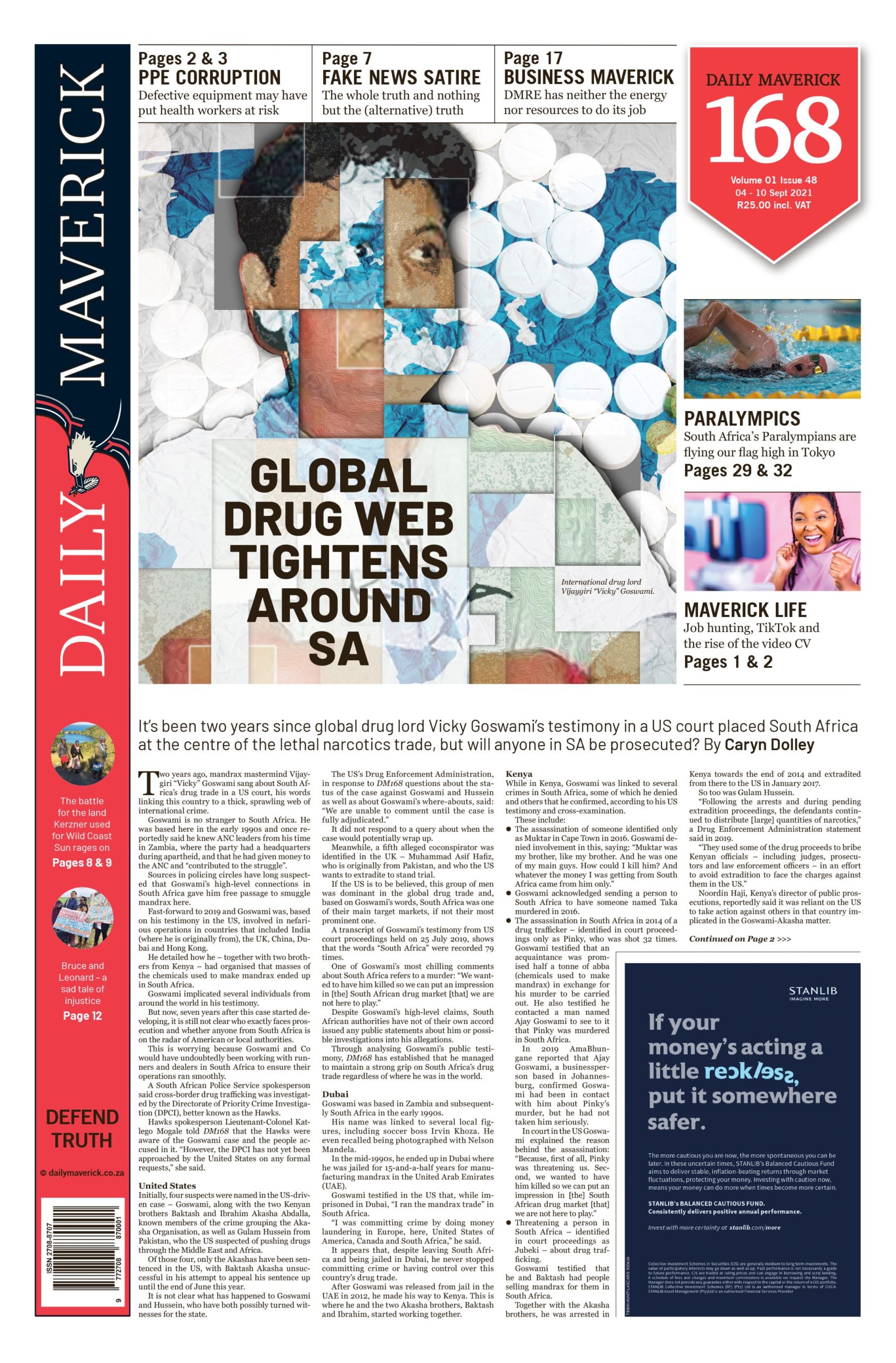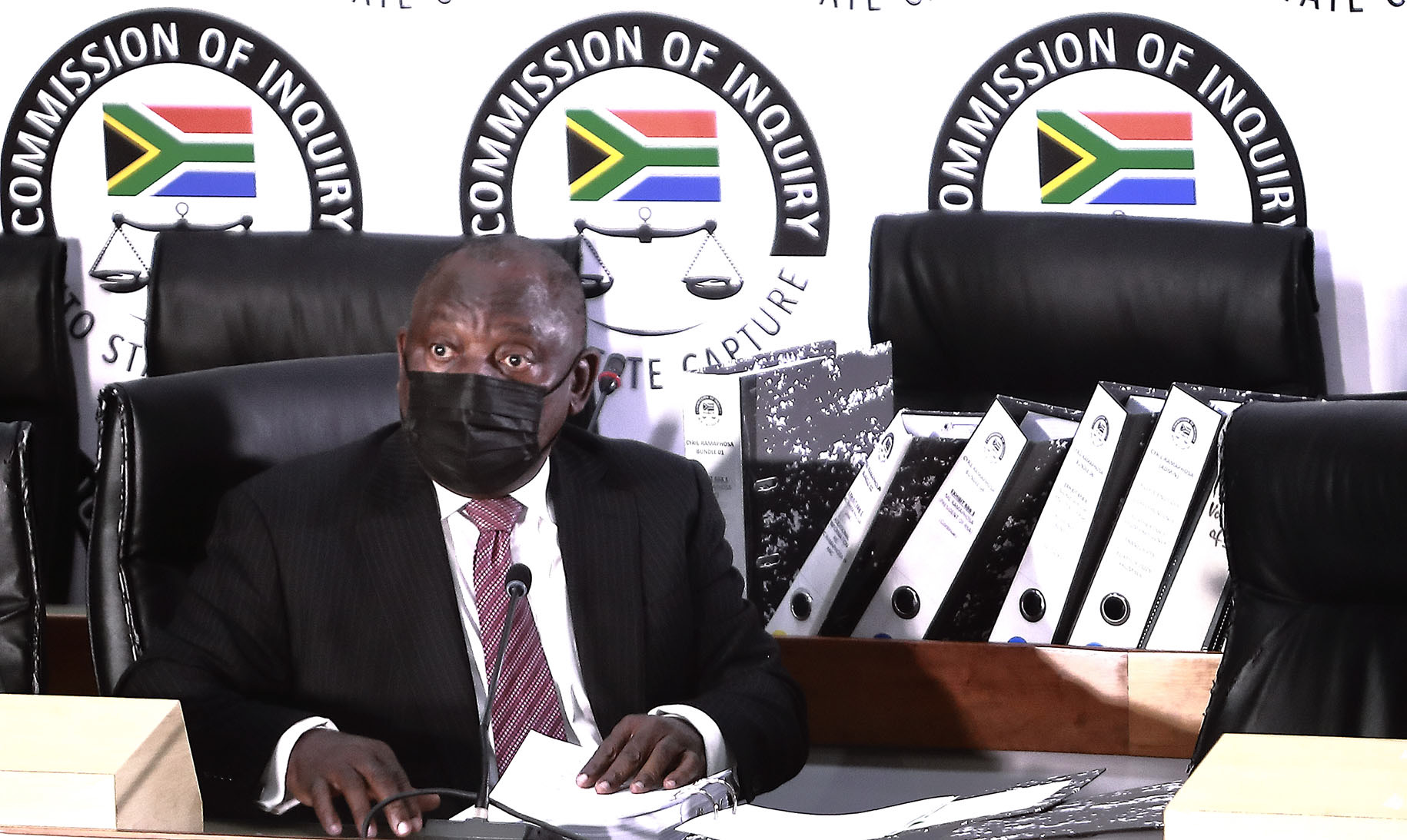First published in the Daily Maverick 168 weekly newspaper.
The Shakespearean words of Julius Caesar are instructive. “Cowards die many times before their deaths; the valiant never taste of death but once.” The words of the Bard are descriptive of what courage in action might mean to those who aspire to have their names inscribed in the annals of history.
This clearly seems to suggest that men and women who lack courage and conviction often do not earn respect, and that President Cyril Ramaphosa might just miss that honour, if his performance at the Zondo Commission of Inquiry into State Capture is anything to go by.
He did not want to nail his predecessor, former president Jacob Zuma, the one who made it possible for the commission to be constituted in the first place, but instead gave him respect Zuma did not deserve, given his own contribution to the fomenting of State Capture while in office.
Philosopher Immanuel Kant describes truth-telling as “a perfect duty” never to be overridden by other values, not even saving the life of a friend.
Courage and truthfulness go hand in hand – to be truthful to your convictions; to stand on the side of truth and justice, whatever the risk associated with truth-telling might bring.
On 5 December 1955, one African-American woman risked arrest rather than surrender her bus seat to a white passenger on the Montgomery city bus. She believed in her truth and its righteousness, and so resisted.
The courageous black woman, Rosa Parks, then 42, unflinchingly stood her ground, and would later say: “I would like to be remembered as a person who wanted to be free so that other people would also be free … all I was doing was trying to get home from work.”
Truthfulness makes us free. Nelson Mandela’s truthfulness to negotiate with the enemy camp, despite serious reservations by many of his comrades, tells us something about the man. Truthfulness is not always popular. We often bend it to suit occasions and whims. Some, wrongfully, continue to regard Madiba as a “sell-out” because he engaged the system as typified by white people who ran the corrupt National Party apartheid ship.
Mandela knew it, and was a victim of the system that kept him incarcerated for 27 years. But he still believed he could negotiate with his tormentors to reach a better deal without too much blood being spilled. It was his truth, and he stood by it. Today his name populates the annals of history.
I digress because I want to make this point: today the US and the world remembers Parks as the heroine who gave teeth to the civil rights movement.
The US is a better place today than it was in 1955. Today her name is emblazoned in the annals of history. Today, 5 December is recognised as Rosa Parks Day.
In SA, Makhosi Khoza, former ANC MP and chairperson of the Portfolio Committee on Economic Development, resigned from her position in Parliament and the ANC, because she differed with her colleagues in the party. Told not to support a motion of no confidence in Zuma in 2017, Khoza preferred to terminate her party membership than to collude with evil.
Both Parks and Khoza were guided by their moral compass to do what is right and just, and to follow their conscience.
“I would like to be remembered as a person who wanted to be free,” said Parks.
Her name will be remembered, and inscribed in the hearts of generation after generation who thirst for freedom and justice and righteousness. With courage, grace and integrity she challenged the US’s political hegemony and might. In social status she was not a political colossus. She held no position. She was a seamstress, a low-paid factory worker. Yet her commitment to a just cause, and the resilience to refuse to be bullied by those who saw privilege in the colour of their skins, asserted her as a towering woman who truly believed she was destined to change the course of history in her country. Truthfulness to her conviction.
Why did President Ramaphosa not imagine what Parks and Khoza imagined? Truthfulness, even when it was not convenient to tell it? He buckled; preferred to walked on eggs, cautious, and sought to keep peace with his comrades, a fraction of the ANC total. Zuma’s years in office were an abomination. Ramaphosa knew it, but would not tell the Zondo Commission so. He sought to keep peace with his comrades at the expense of truth-telling.
Ramaphosa should have been frank with the Zondo Commission. He should have told it that Zuma’s administration had eroded the trust people had in the ANC, and had contributed significantly to the malfeasance that has come to characterise the ANC. He should have said comrades such as Makhosi Khoza should have been supported as they sought to tell the truth as they knew it.
Ramaphosa dug his grave. He looked over his shoulder in search of imaginary foes. There were none. In front of him there stood one choice, which was to tell the truth as he knew it: that the Zuma era was evil; and that it produced for many South Africans evil outcomes.
It is fear that Ramaphosa must confront. Courage is a virtue. Ramaphosa needs to be emboldened, and be prepared to bite the bullet in order to tell the truth. Zuma has no legacy, and does not need Ramaphosa to prop him up. DM168
Jo-Mangaliso Mdhlela is a journalist and priest, and former trade unionist.
This story first appeared in our weekly Daily Maverick 168 newspaper which is available for R25 at Pick n Pay, Exclusive Books and airport bookstores. For your nearest stockist, please click here.

South Africa
Zondo Commission: Ramaphosa should have had the courage of his convictions and told the whole truth





